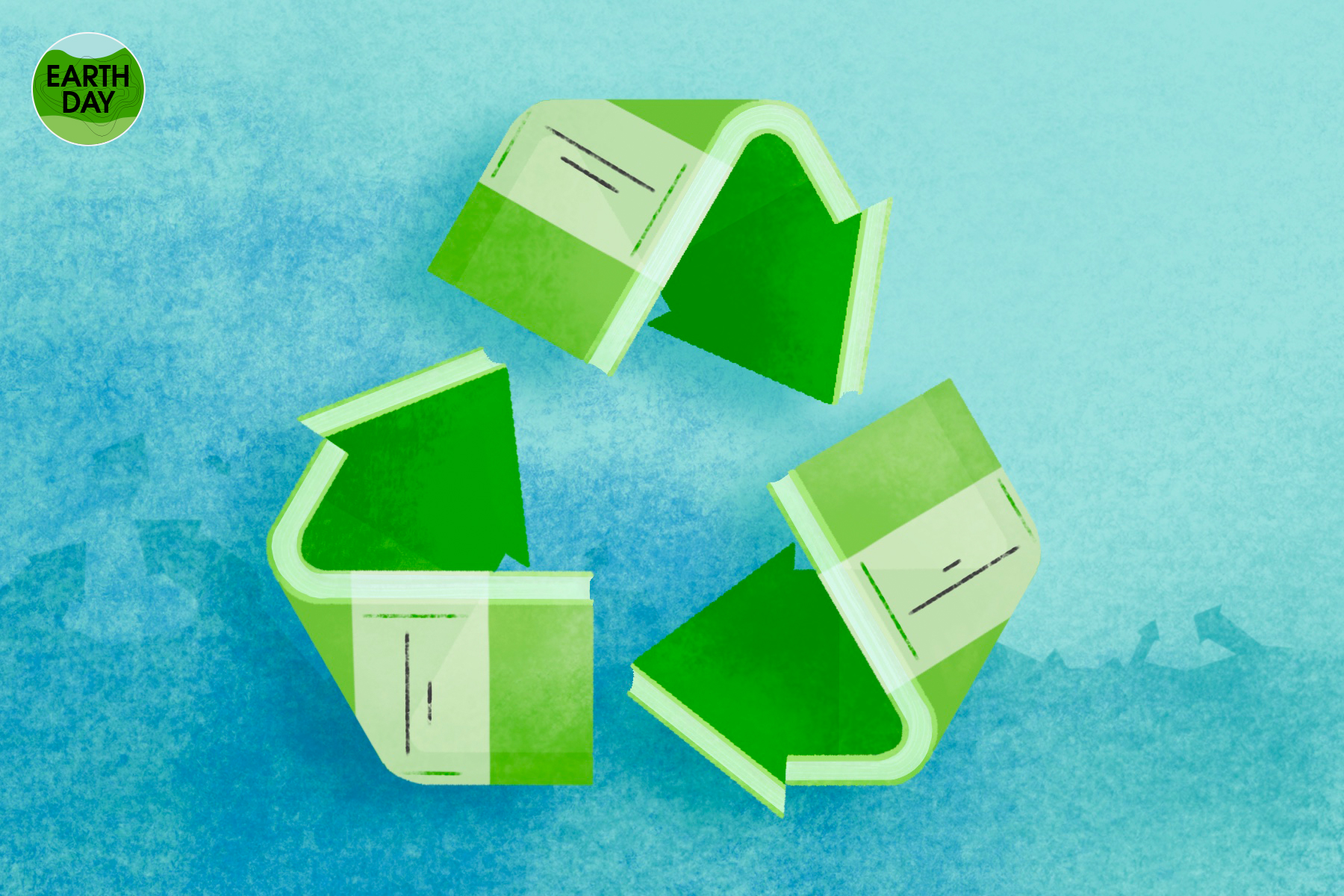
- Home |
- Search Results |
- How to be a more environmentally friendly reader
It’s difficult to make consumer choices in the time of climate crisis: it can feel like everything has an impact on our ailing planet. But what about books, which both educate, entertain and inform us – yet nevertheless are made out of paper, which comes from trees? Estimations for a book’s carbon footprint range from three to a whopping seven kilograms of carbon. Here, we’ve gathered some insightful ideas on how to be a more environmentally conscious reader.
E-readers, audiobooks and paper
If physical books are dependent on cutting down trees – one of the planet’s greatest carbon traps – then perhaps e-readers or audiobooks are the answer? Unfortunately, it’s not as easy as that. It’s estimated that a Kindle racks up 168 kgs of carbon; if you were to do a straight swap of buying paper books for eBooks, you’d have to be a fairly heavy reader before the balance between the two was met. Then, there’s the consideration of charging an e-reader, and how you dispose of it. Recycled responsibly, the precious resources of copper and silicon can be used again, but enough of us have old gadgets gathering dust to suggest that doesn’t always happen. As Anthropocene Magazine established in a 2020 study, it comes down to how many books you read: if you’re an occasional reader, stick to paper books. If you’re a full-on bookworm, it may be time to go digital.
Borrow your books
Look, we’re book people: of course we love libraries. But it’s worth pointing out that another reason libraries are great is because they’re far more environmentally friendly than owning every book you want to read. Every book, journal, magazine and newspaper that comes into a library is there with the intention of being read many times, saving the carbon footprint of a book’s manufacture across dozens of people. You can also borrow audiobooks and eBooks from the library by downloading them directly from home. The fact that libraries are local hubs of the community mean that they often have good public transport links, and are accessible by foot or bike, too. Libraries and librarians are also committed to a greener future: check out the ALIA Sustainable Libraries Group for their tips on sustainable practices.
Read more: What I learned working in a public library
Buy second-hand
As with fashion, electronics or furniture, buying second-hand books means fewer new ones are made, resulting in an 80% reduction in a book’s carbon footprint. If you’re after a book that isn’t brand new, chances are you’ll be able to find it at a second-hand book shop – which will often incur far lower transport costs, if books have been delivered to the shop by the person donating them, and then sold on to you – or online, where for the most you can choose an environmentally friendly postage option. Plus, if you’re buying an old book, you’re saving it from landfill…
Recycle your books
Which brings us onto the best way to be rid of books that really can’t be given away or sold to a new home. Paper usage isn’t the only problematic part of book manufacturing: the glue used to bind the pages together makes them difficult to be recycled. Check your local council website or recyclenow.com to find the best way of recycling those books that really can’t be given away elsewhere. You’ll be surprised how many charity shops, supermarkets and recycling centres will have facilities to deal with your books.
Choose where you buy
As with many hurdles stopping us from combatting climate change, consumers can only do so much: far greater responsibility lies with those at the top of organisations, institutions and governments. However, consumers do have the power to make their voices heard through how they spend their money. Amazon, for instance, is frequently targeted by environmental activists for its hefty emissions and lack of meaningful commitment to tackling climate catastrophe. Many organisations, such as Bookshop.org, offset their delivery emissions for Earth Day last year. Perhaps you want to support your local bookshop, perhaps you want to opt for publishers that are actively tackling the carbon footprint of the books they make, or perhaps you only want to buy second-hand. The decision is yours, but this guide to ethical bookshops may help you make it.
What did you think of this article? Email editor@penguinrandomhouse.co.uk and let us know.
Image: Flynn Shore/Penguin